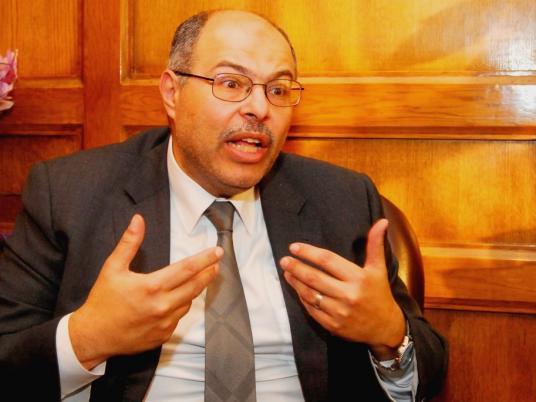 The Presidential Elections Commission has designated one judge per ballot box to oversee the polling stations for the election scheduled to start Wednesday, commission Secretary General Hatem Bagato said.
The Presidential Elections Commission has designated one judge per ballot box to oversee the polling stations for the election scheduled to start Wednesday, commission Secretary General Hatem Bagato said.
Bagato said at a news conference Saturday that there will be some difficulties with polling stations in distant areas with only dozens of voters.
He said the commission believes in the role of media and civil society in the elections. He said 2,859 members of the media have obtained permission to cover the election.
Forty-nine local NGOs have obtained 9,534 election-monitoring permits, while three out of five foreign NGOs that applied have been granted 243 permits.
The commission has no interest in rigging the election, Bagato said, adding that the judges who will oversee the poll are the same ones who oversaw the parliamentary elections, which ended earlier this year.
More than 50 million voters are eligible to cast their ballots, with 6 million in Cairo and 4 million in Giza.
The biggest of the 351 general polling stations are located in Cairo and Sharqiya governorates, while the smallest are in Suez and New Valley.
A woman will be stationed in each polling place to verify the identities of female voters who wear face veils, Bagato said. Any voter who declines to show her face will be barred from voting.
Voters will not be allowed to take photos of ballot papers with cameras on their mobile phones, and violators would be subject to imprisonment and fines, he said.
Glass ballot boxes will be used and phosphoric ink has been imported from Denmark, he said.
The Arab League, African Union and the European Commission, as well as foreign embassies in Egypt, have been invited to send monitors to the election.
Electoral campaigning is banned inside and outside polling stations. Bagato said police and army forces would arrest anyone campaigning during the period of election silence.
Voters are not allowed to talk to the press inside polling stations, but judges can give statements to the press.
Bagato said the database of voters is reviewed and filtered by the judges, who obtain information from the Health Ministry and civil affairs authorities.
He added that if the name of a dead person is found in the lists of voters, the error would likely be due to a lack of information on his or her death certificate.
He emphasized that voter lists have been revised to filter out people who had died and others who are not eligible to vote.
Aside from voters, nobody is allowed into a polling station unless he or she carries a relevant permit or is a member of the Presidential Elections Commission.
People carrying signs that show which candidate they support will not be allowed into polling stations, he said.
Bagato said voters should choose only one presidential candidate, adding that making any additional marks on the ballot paper will invalidate their vote.



